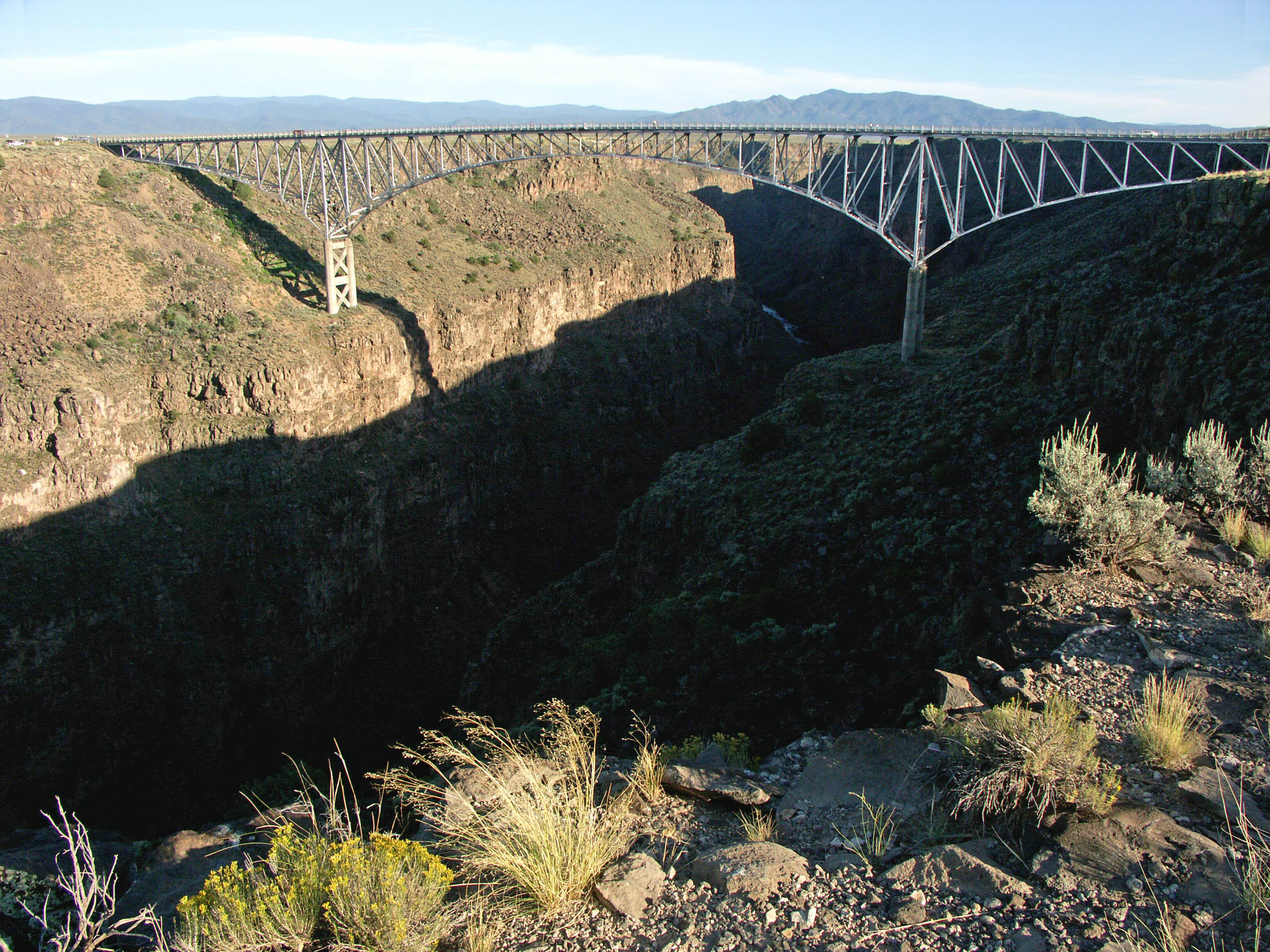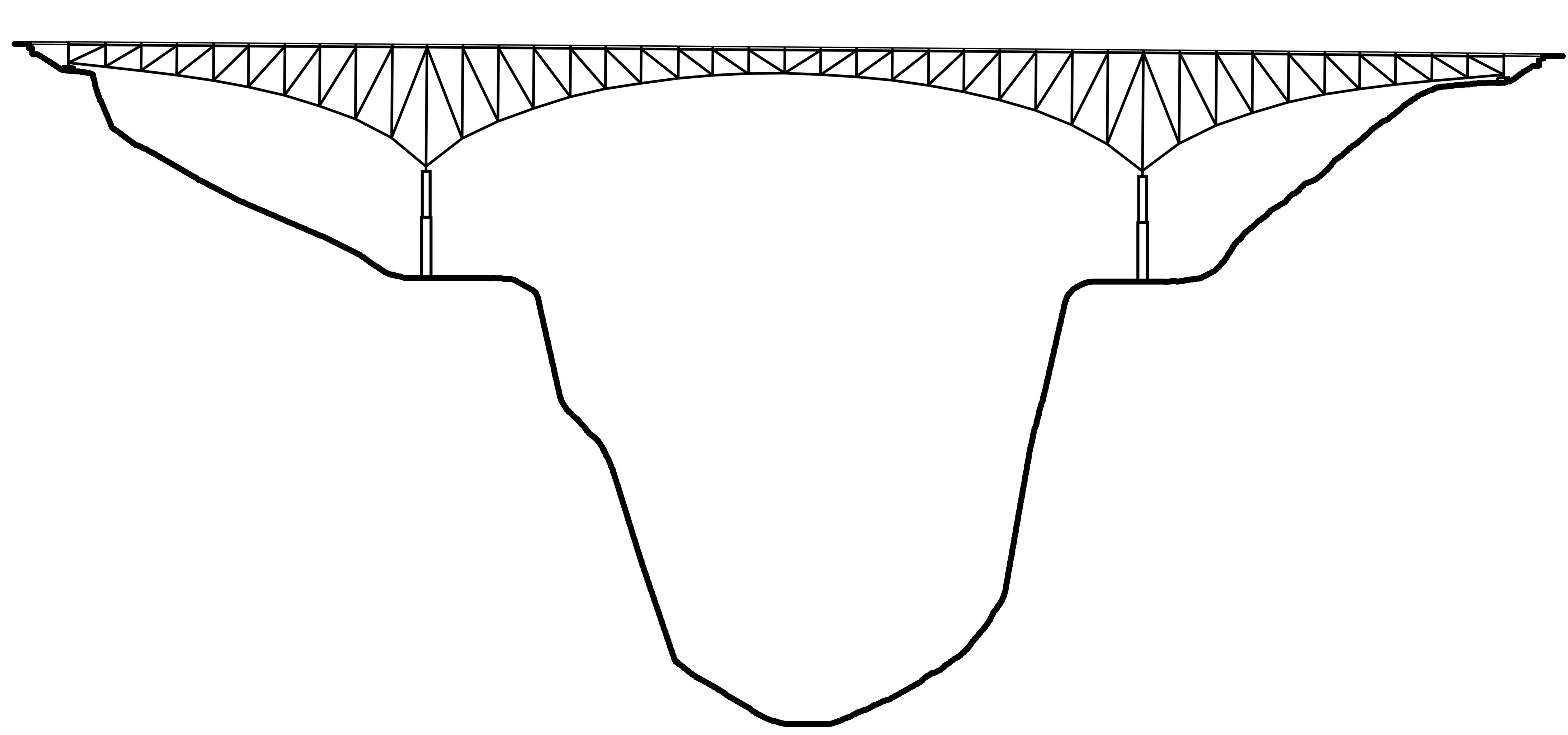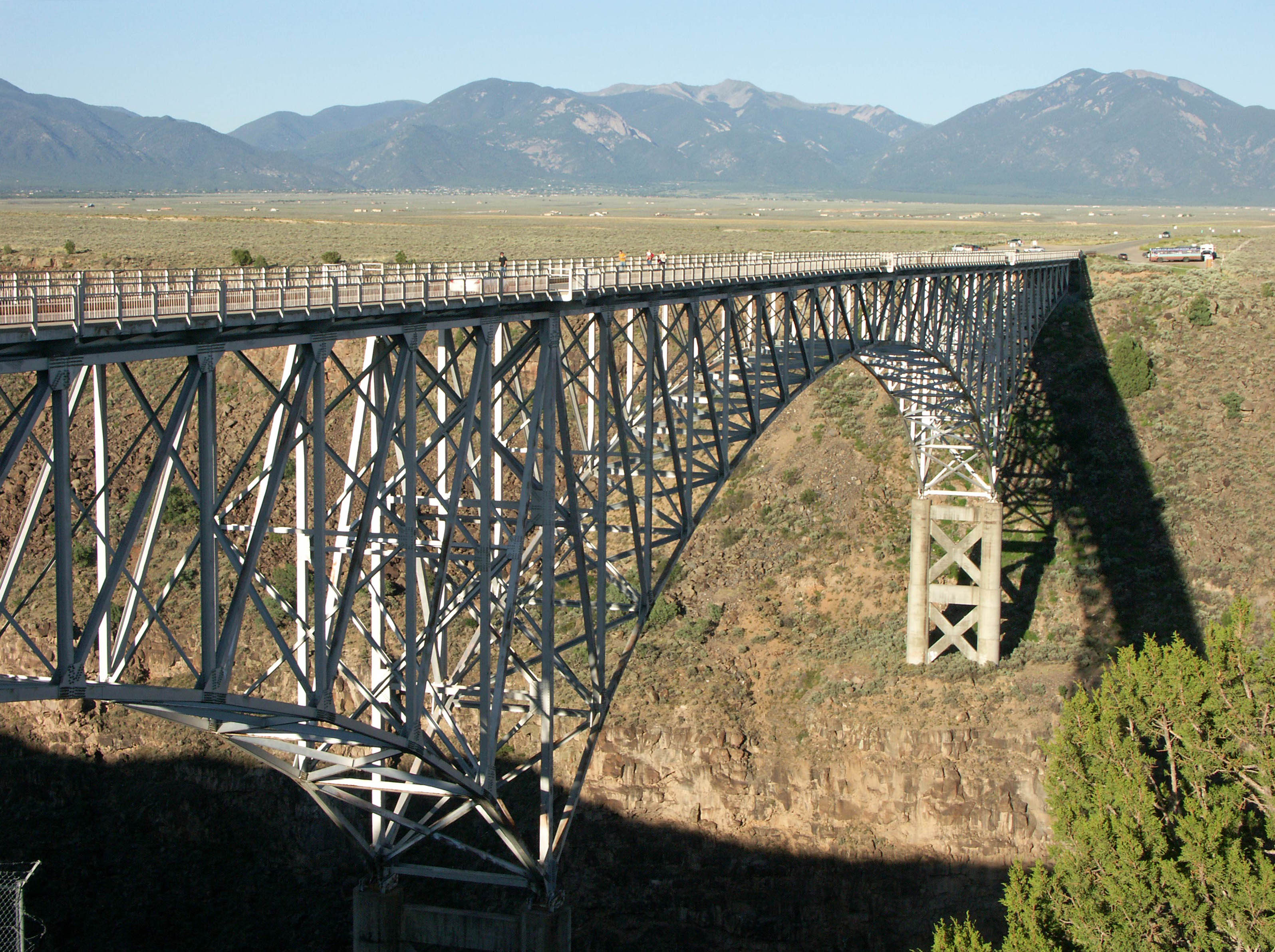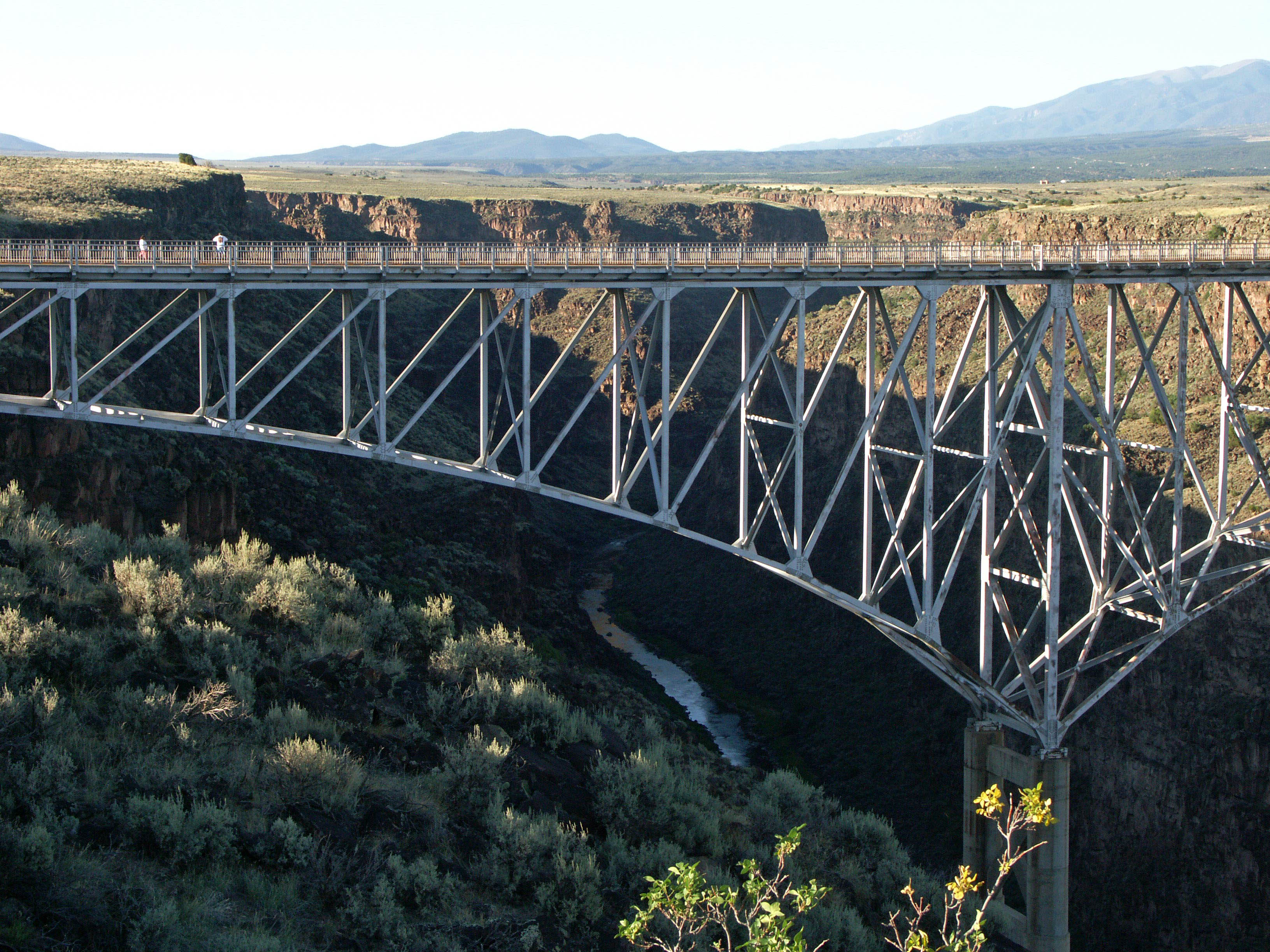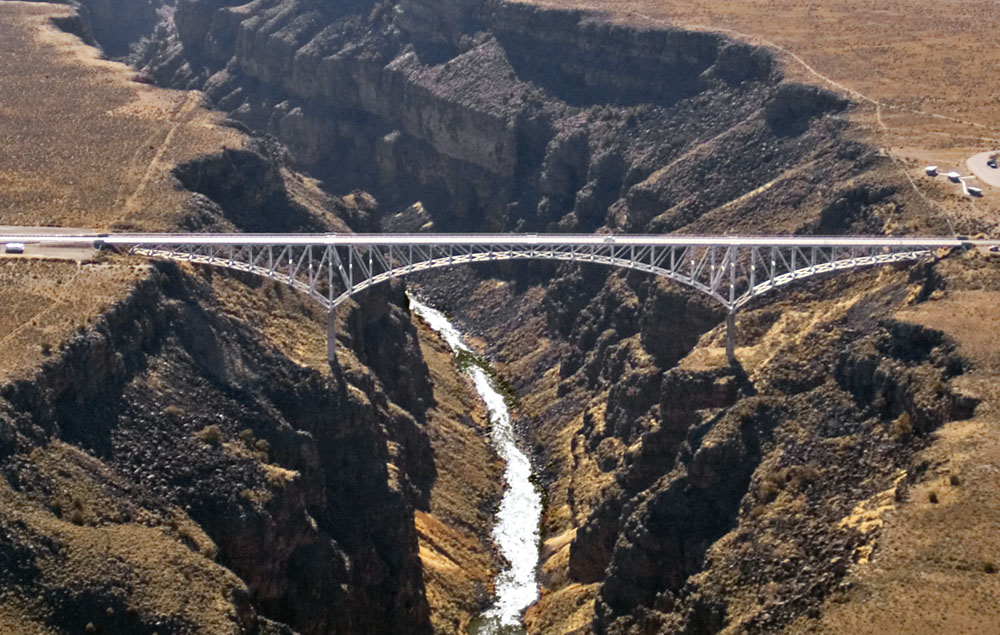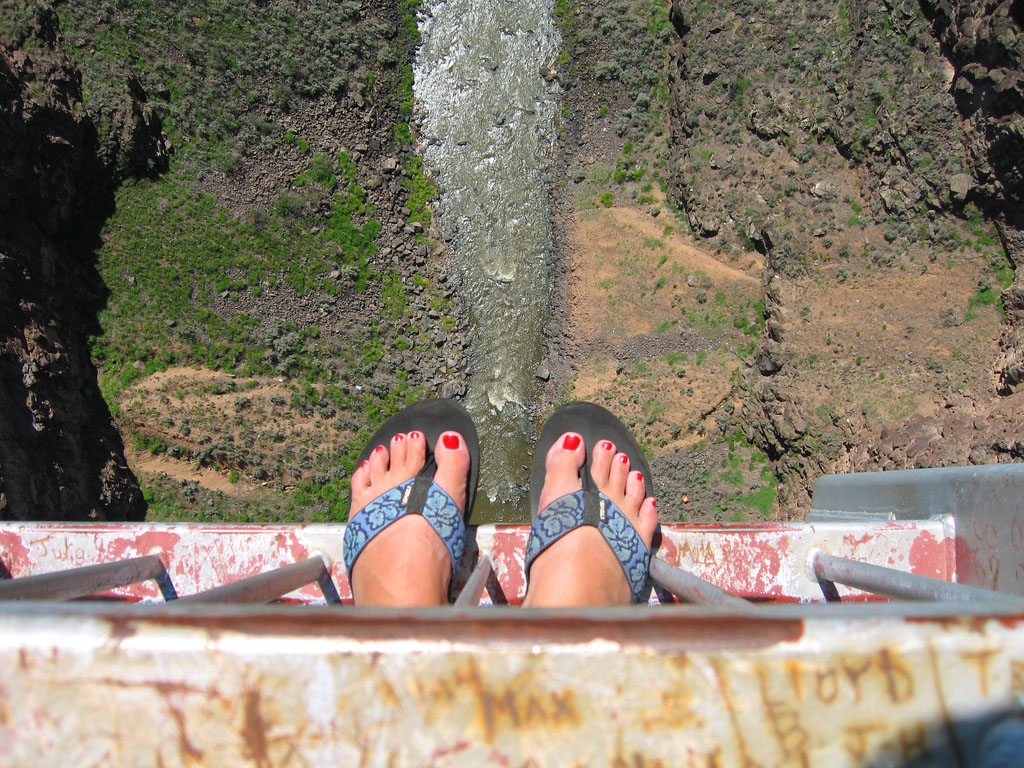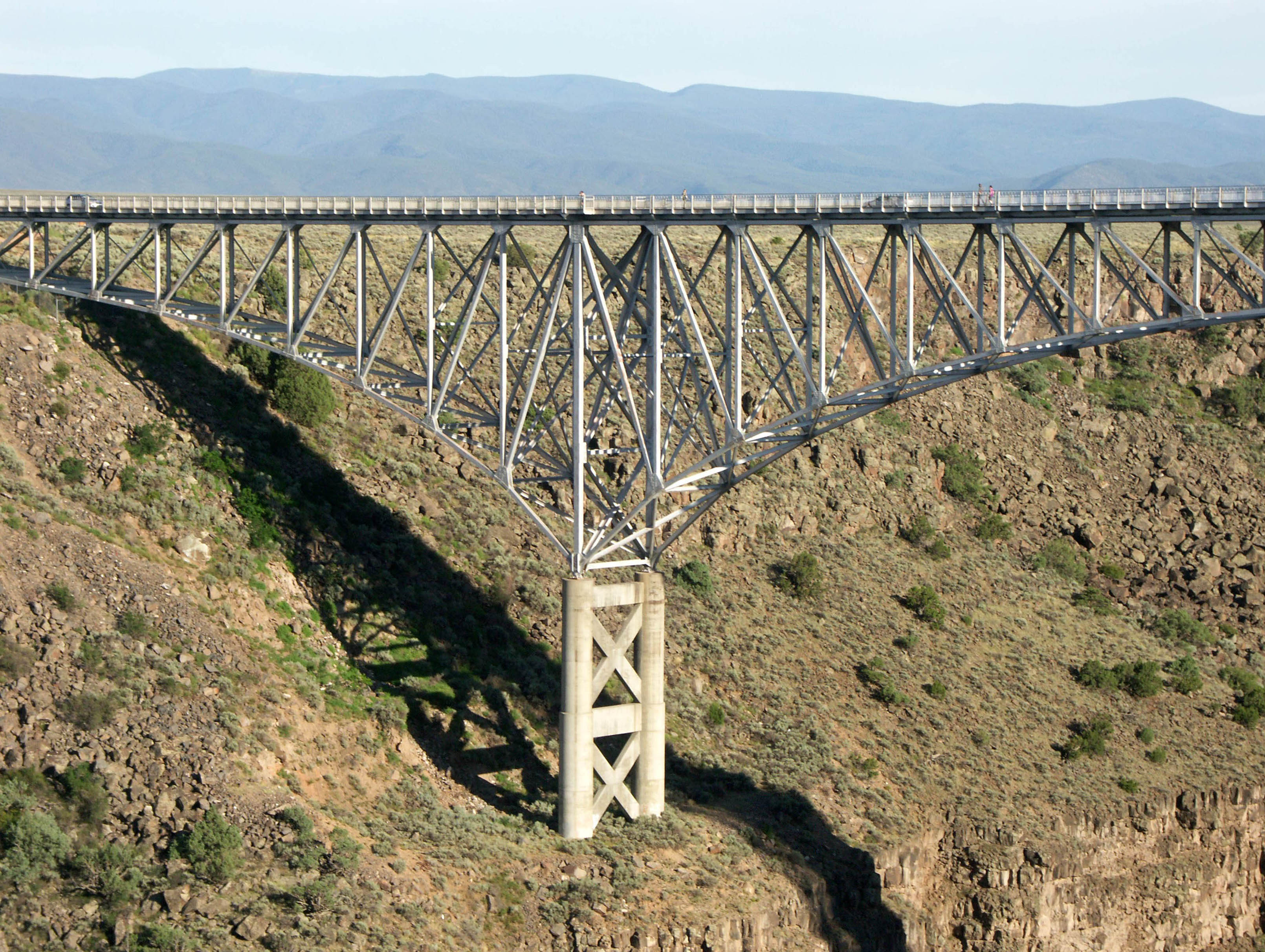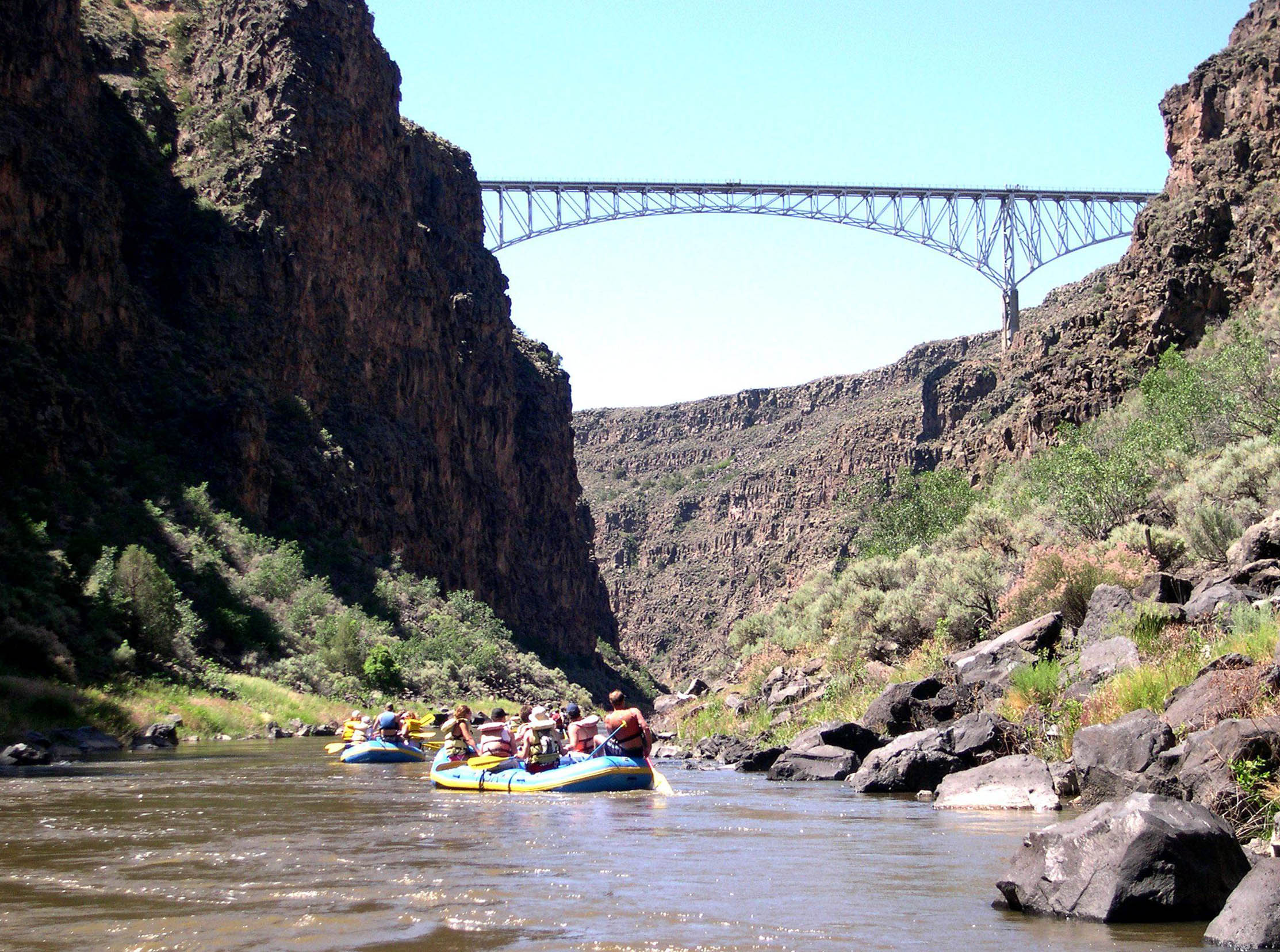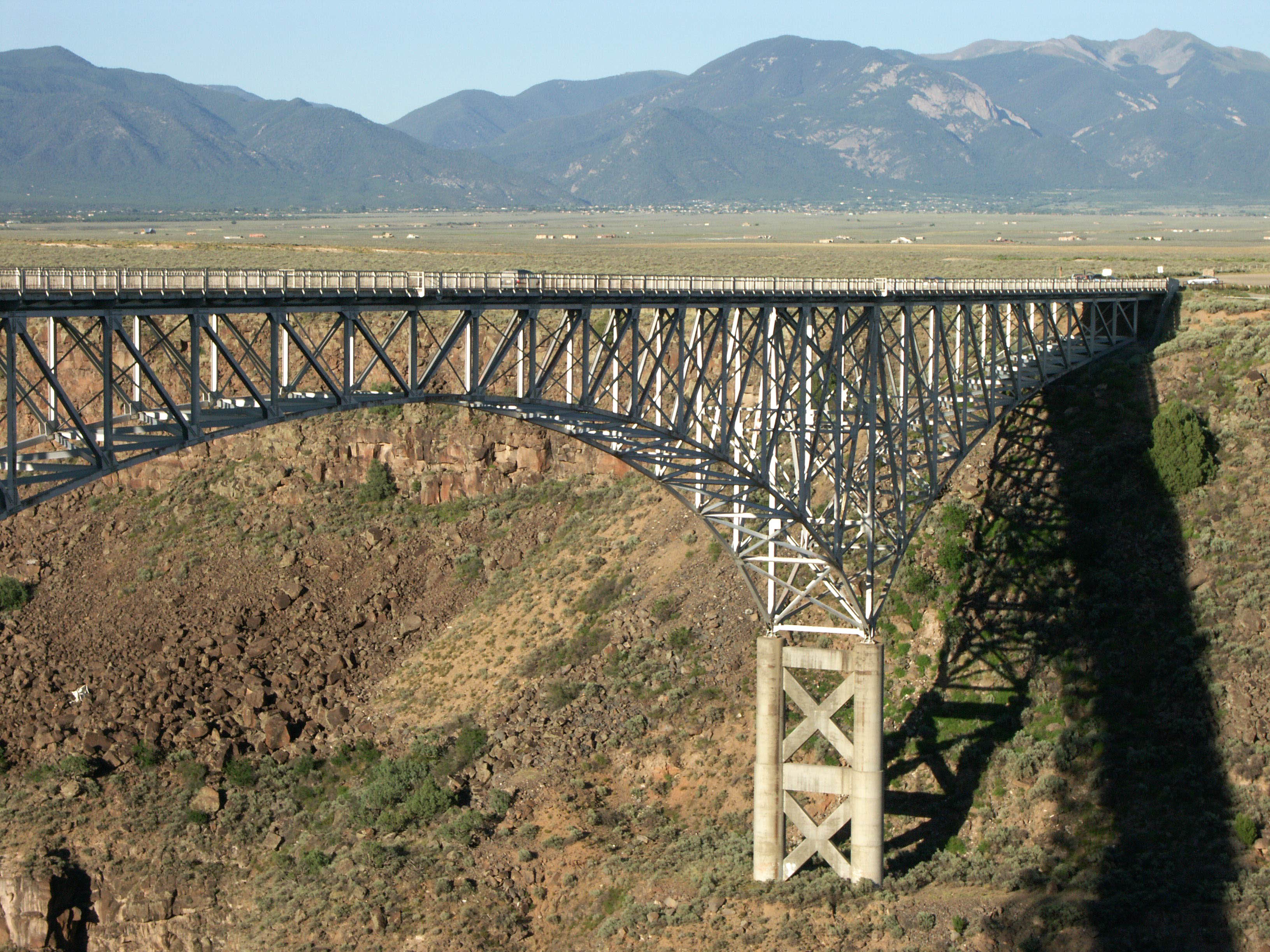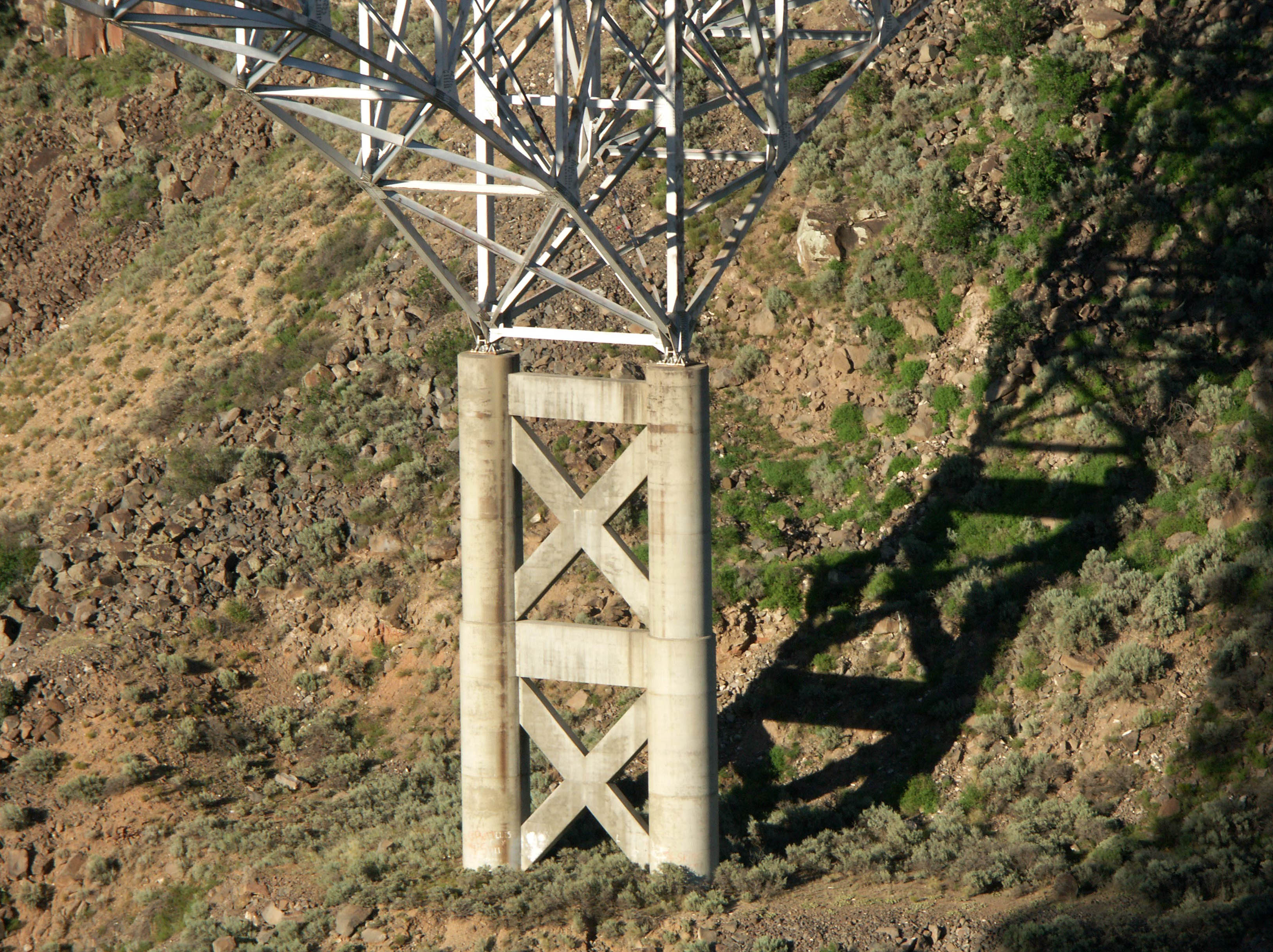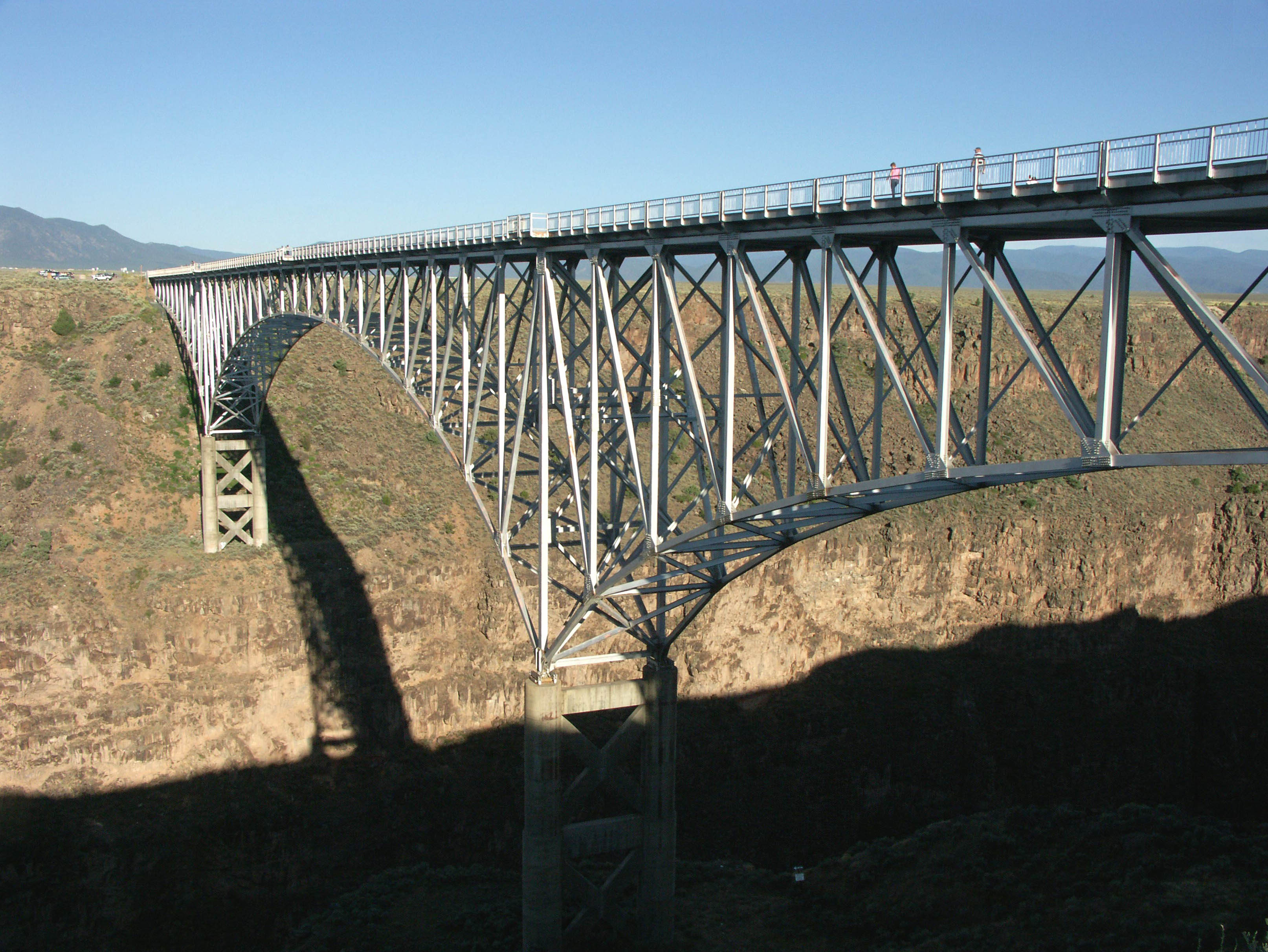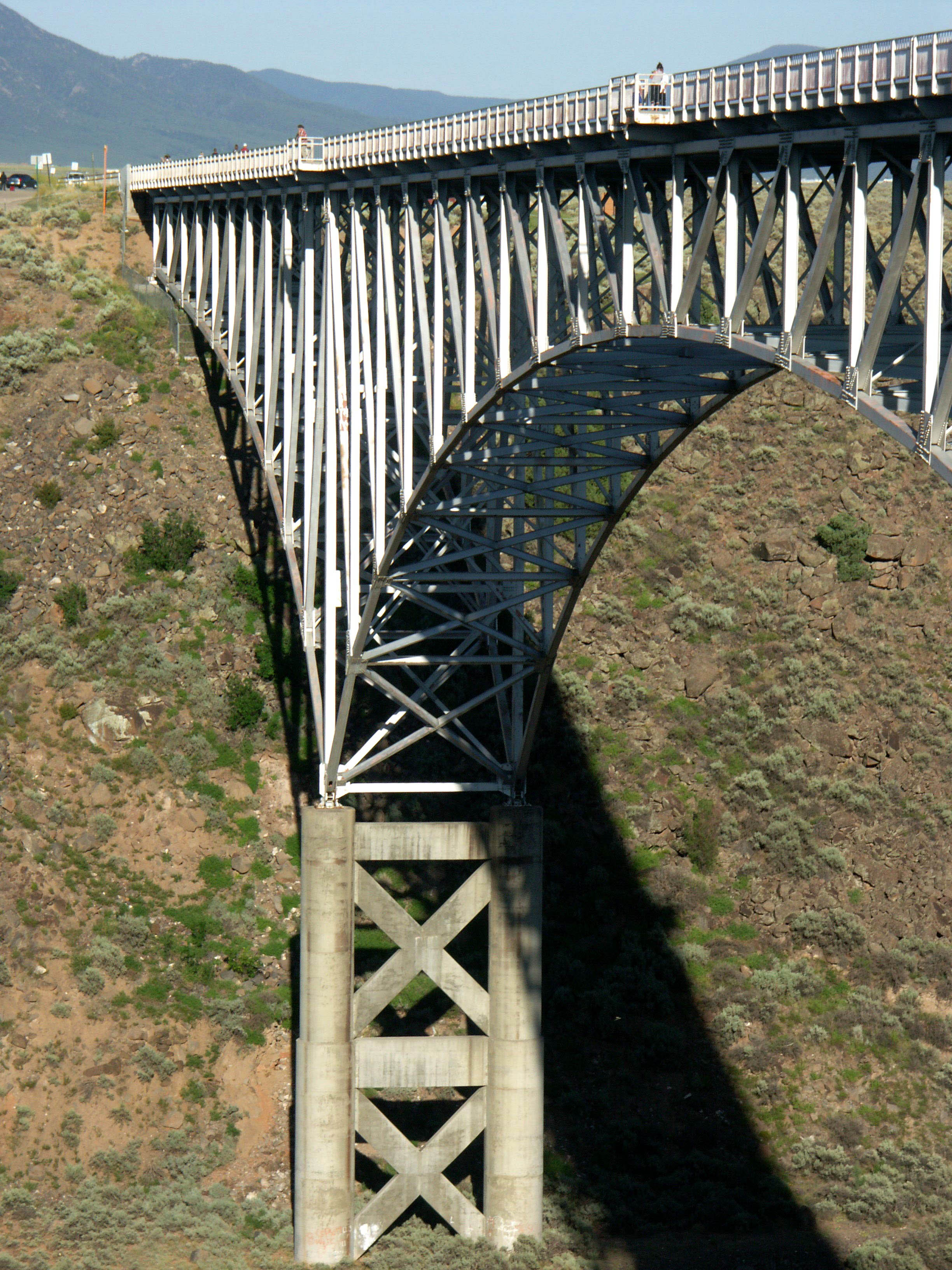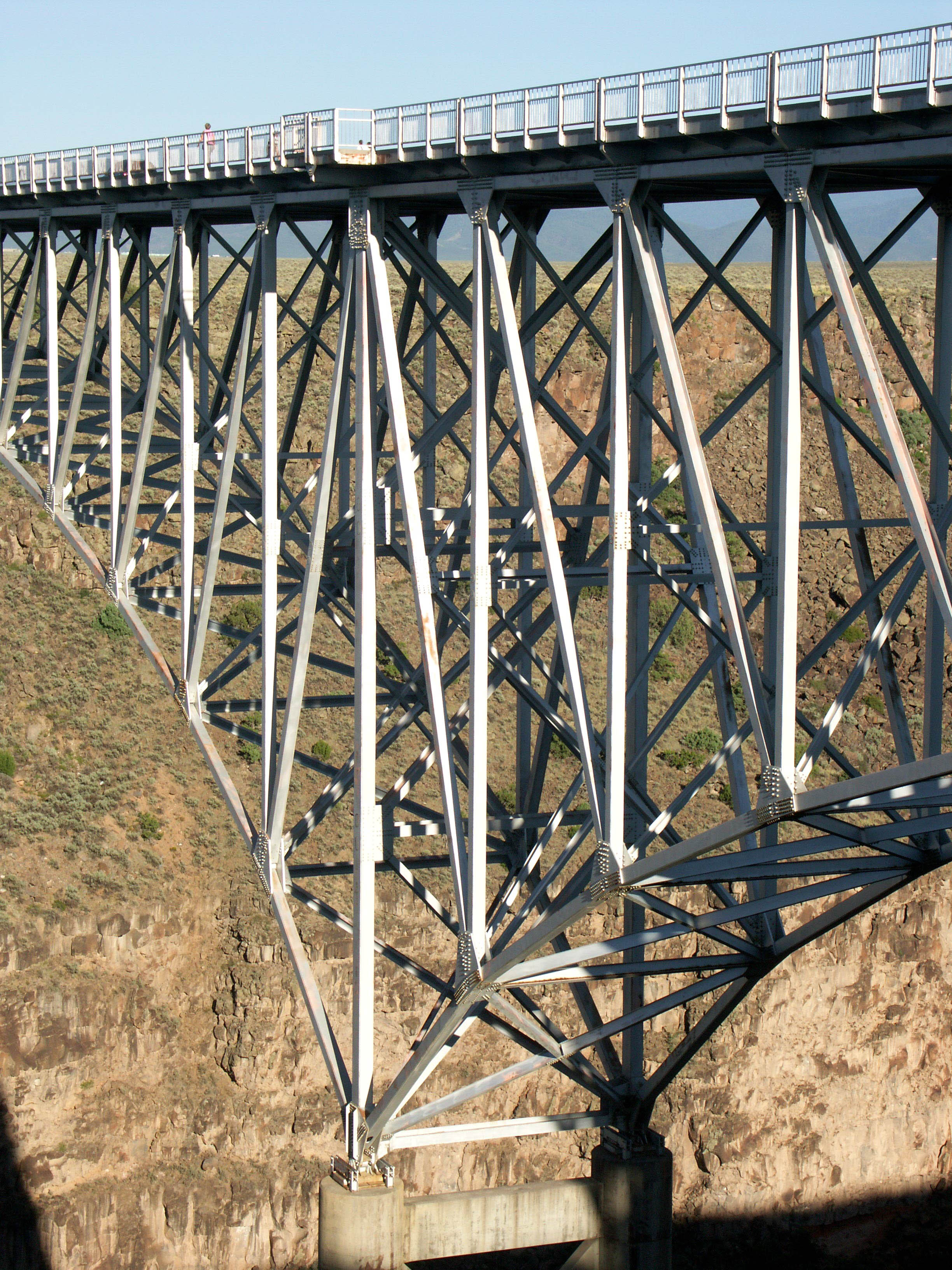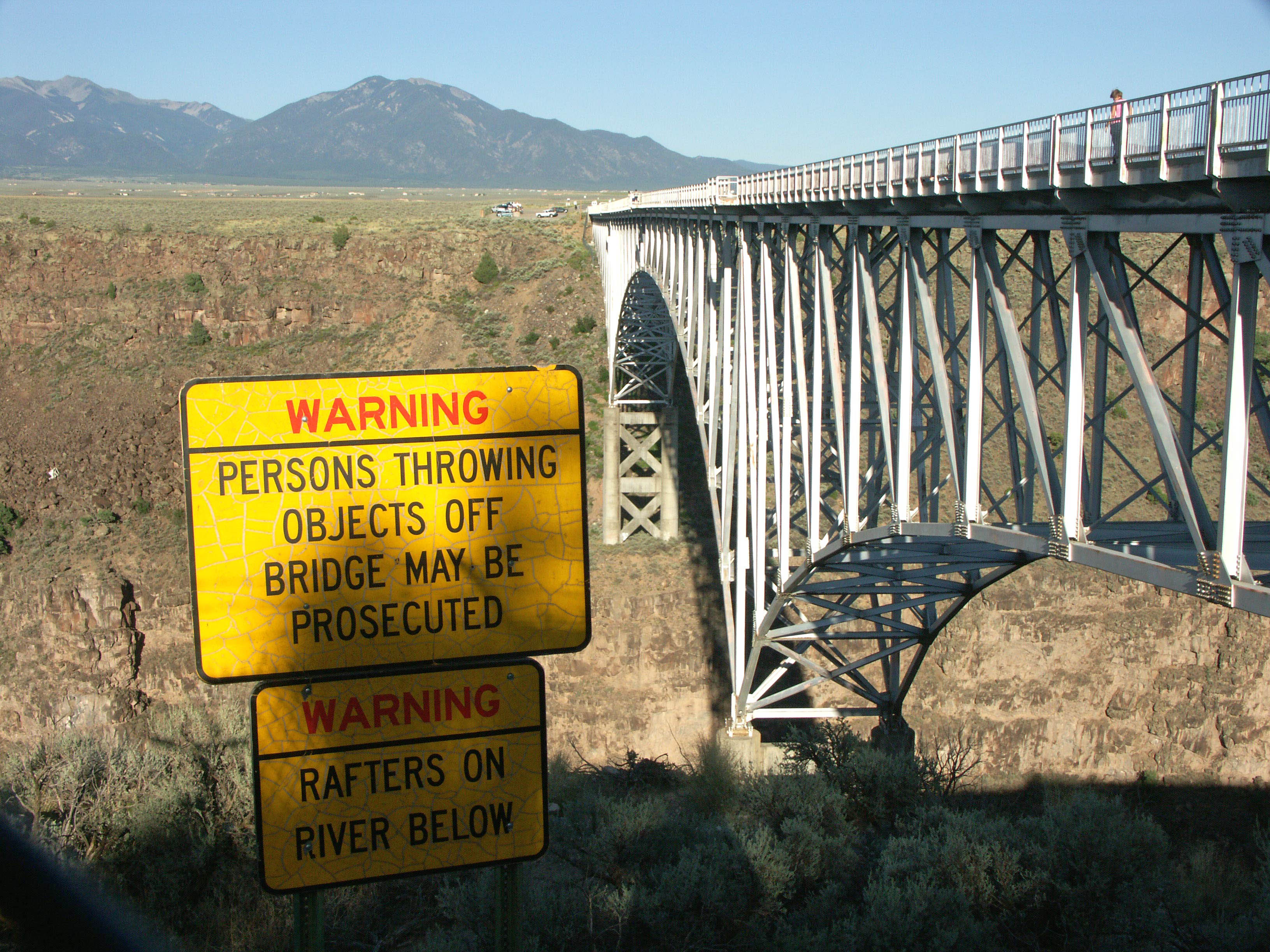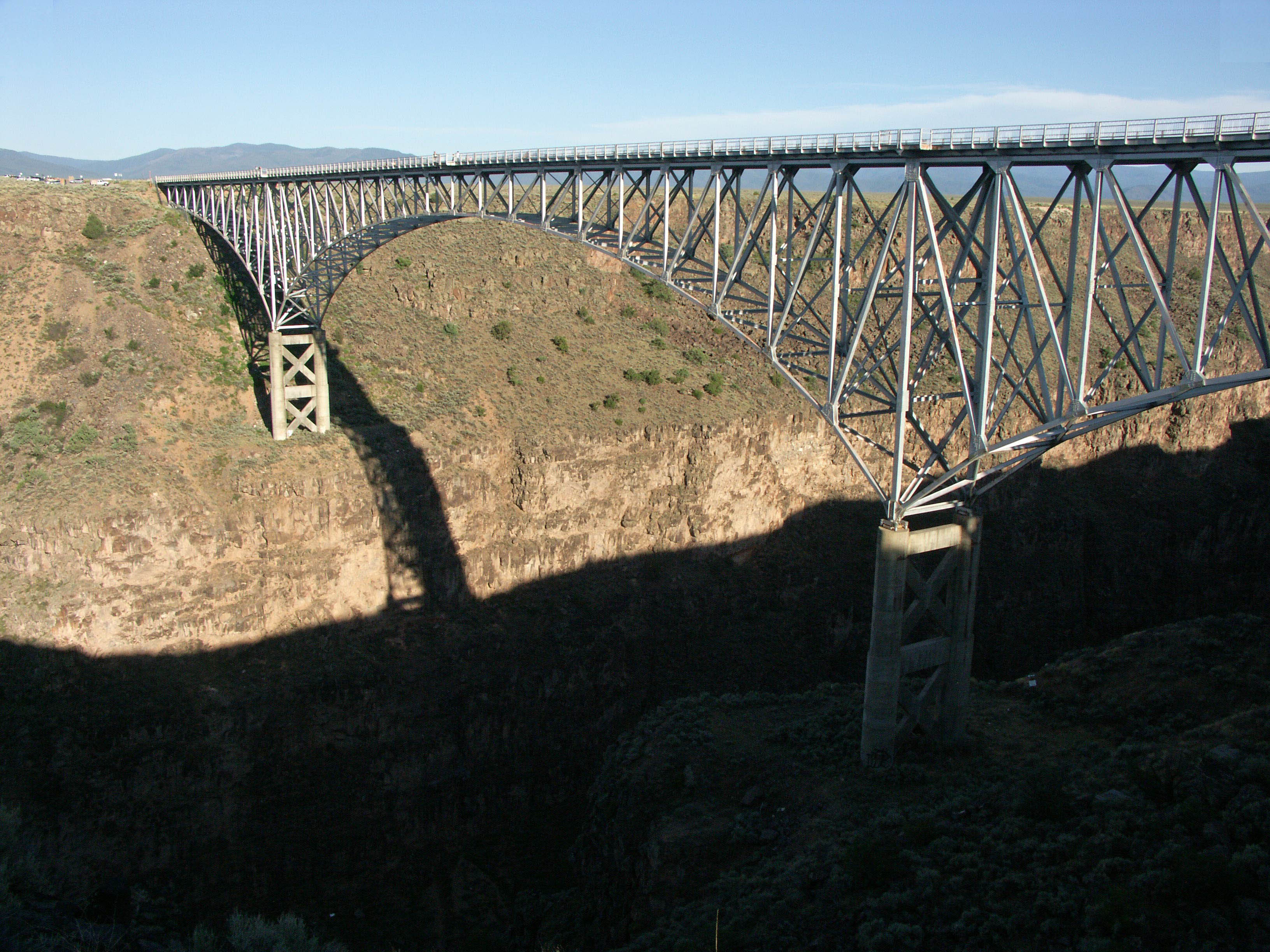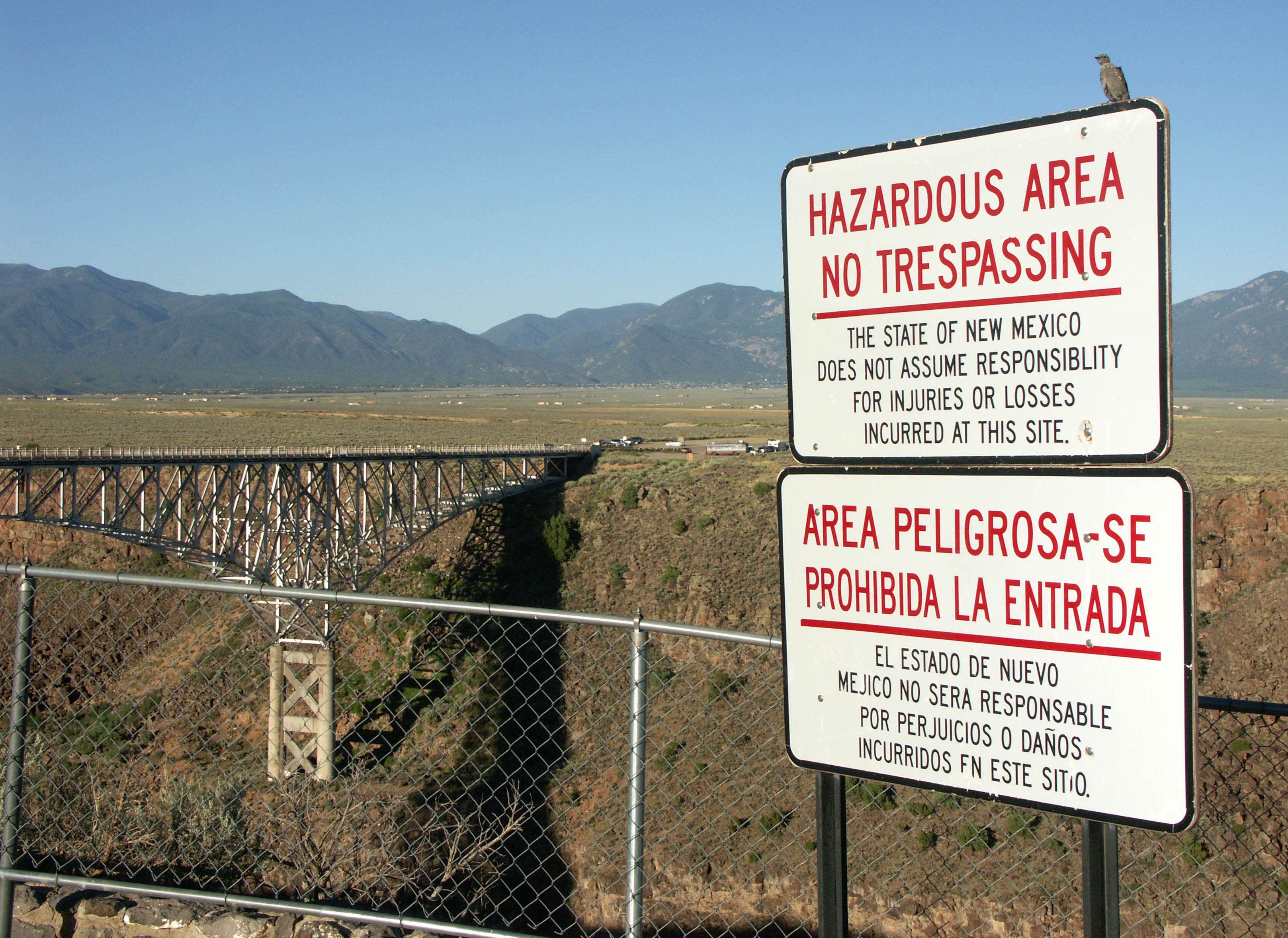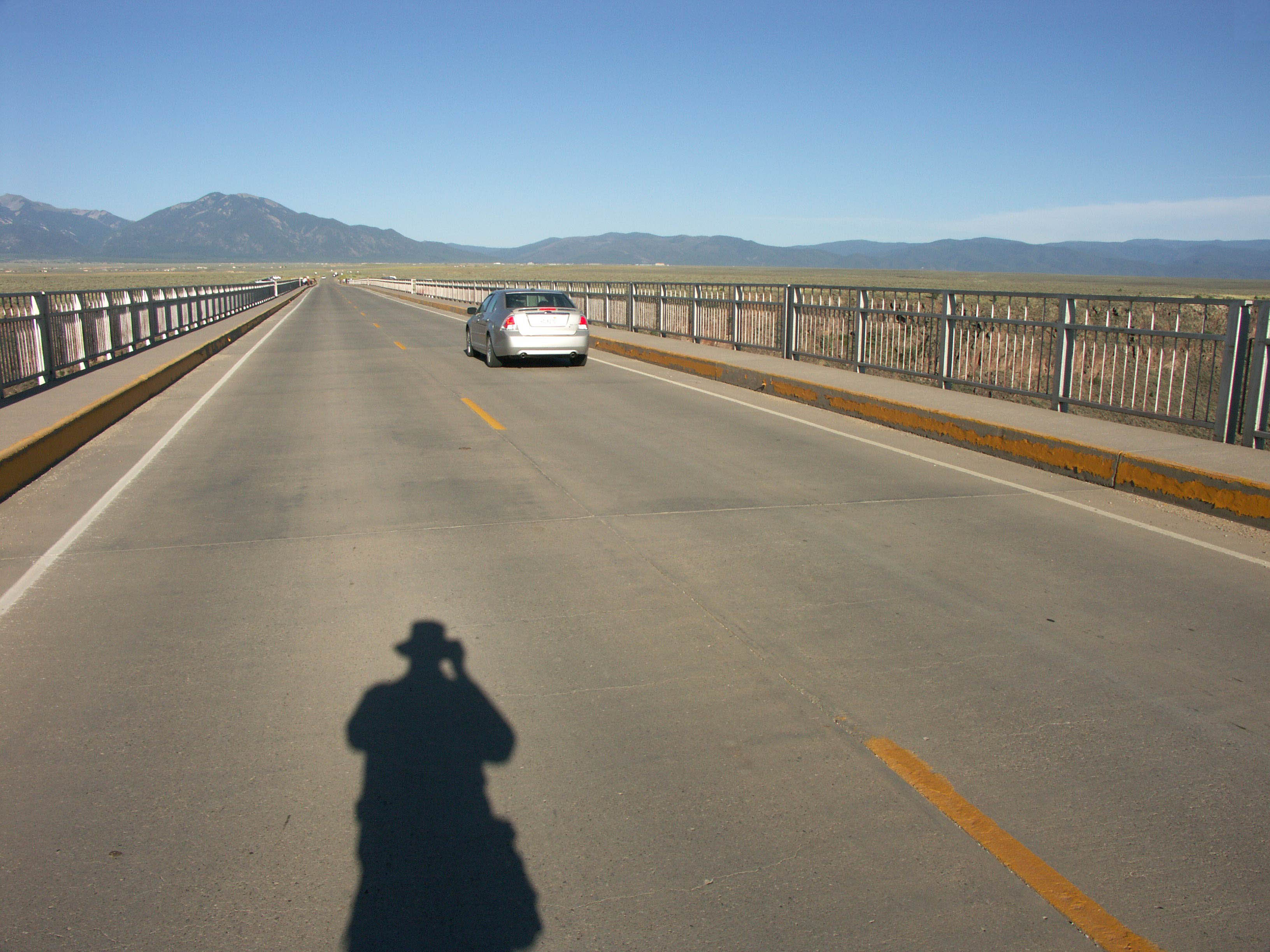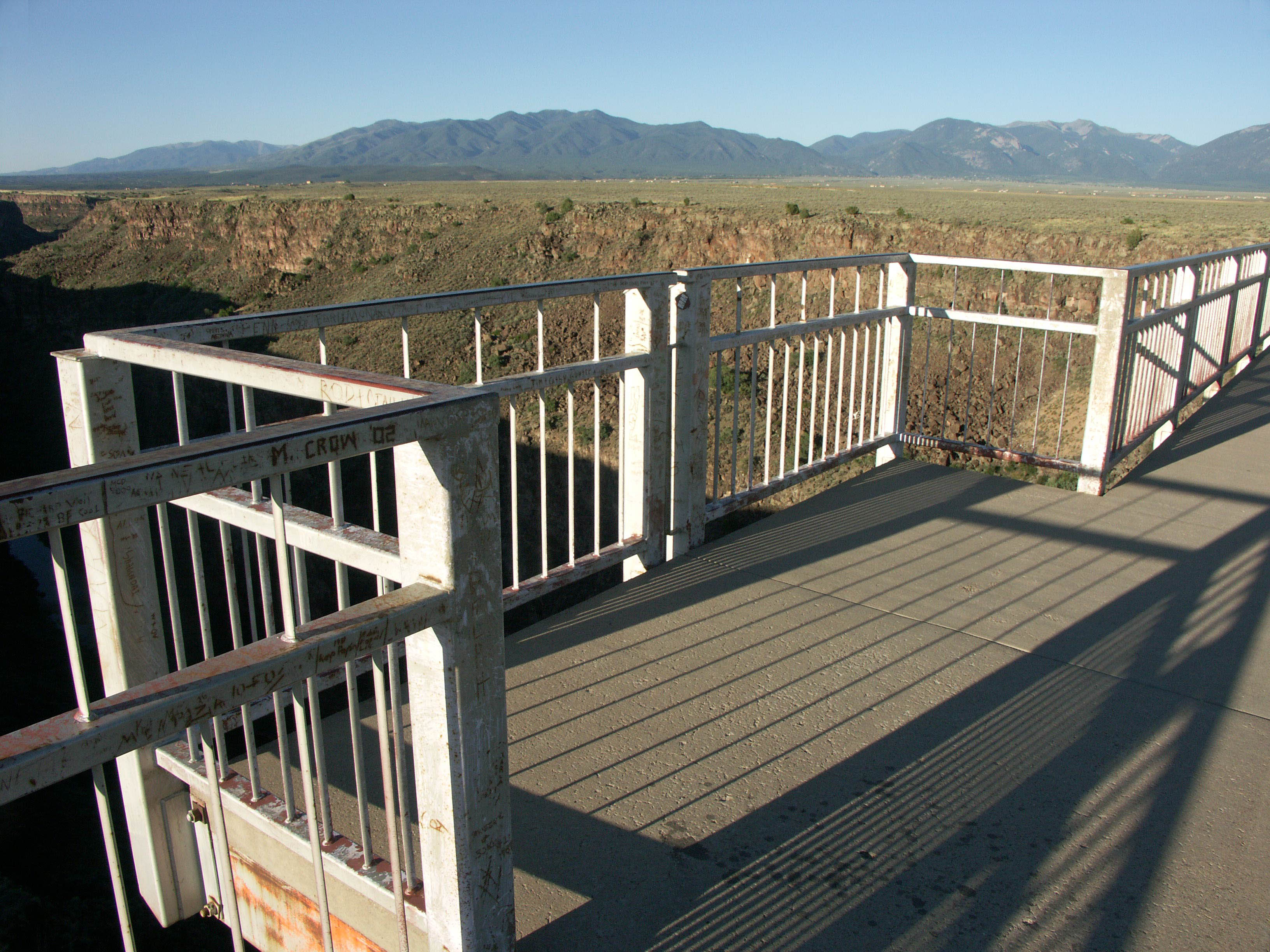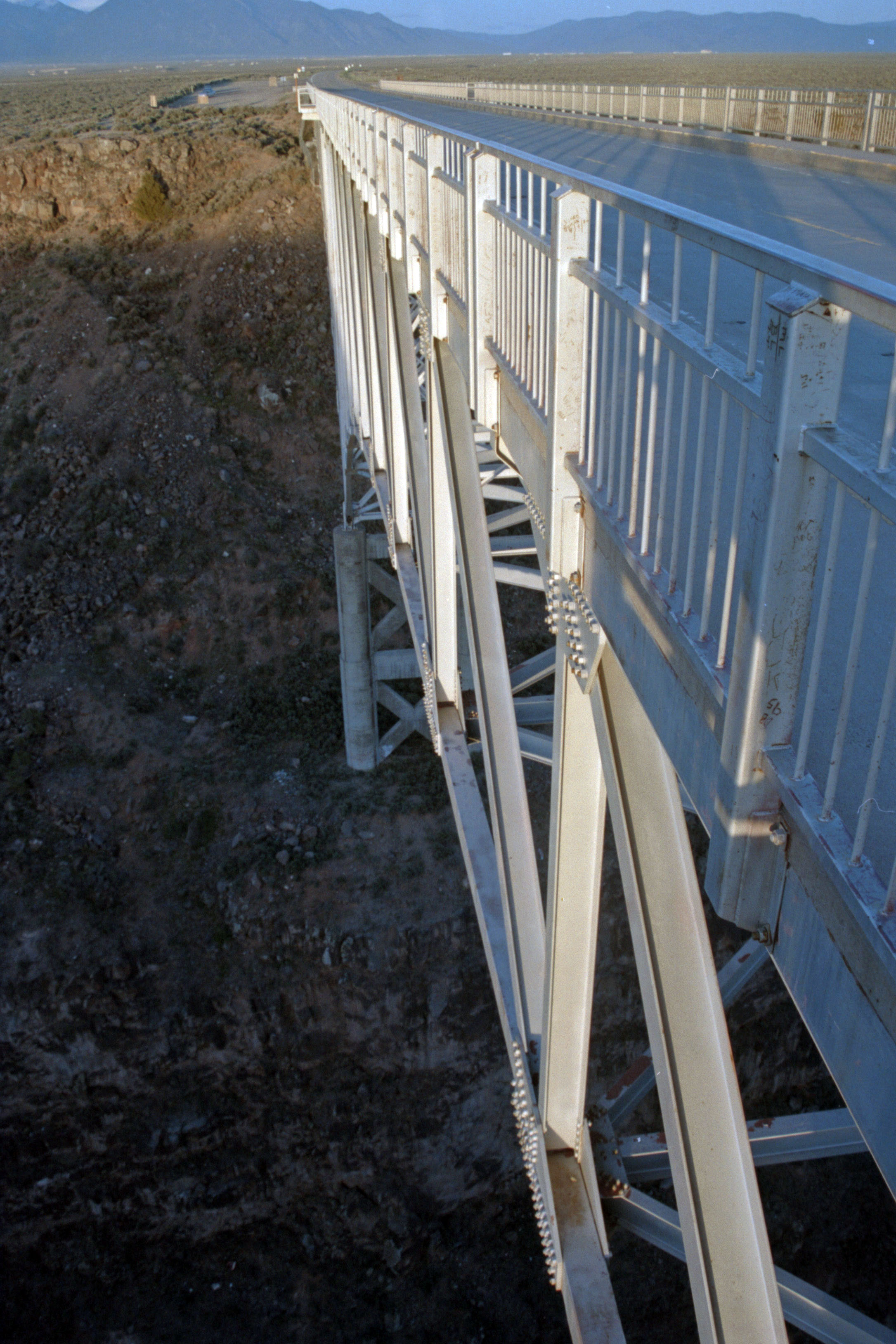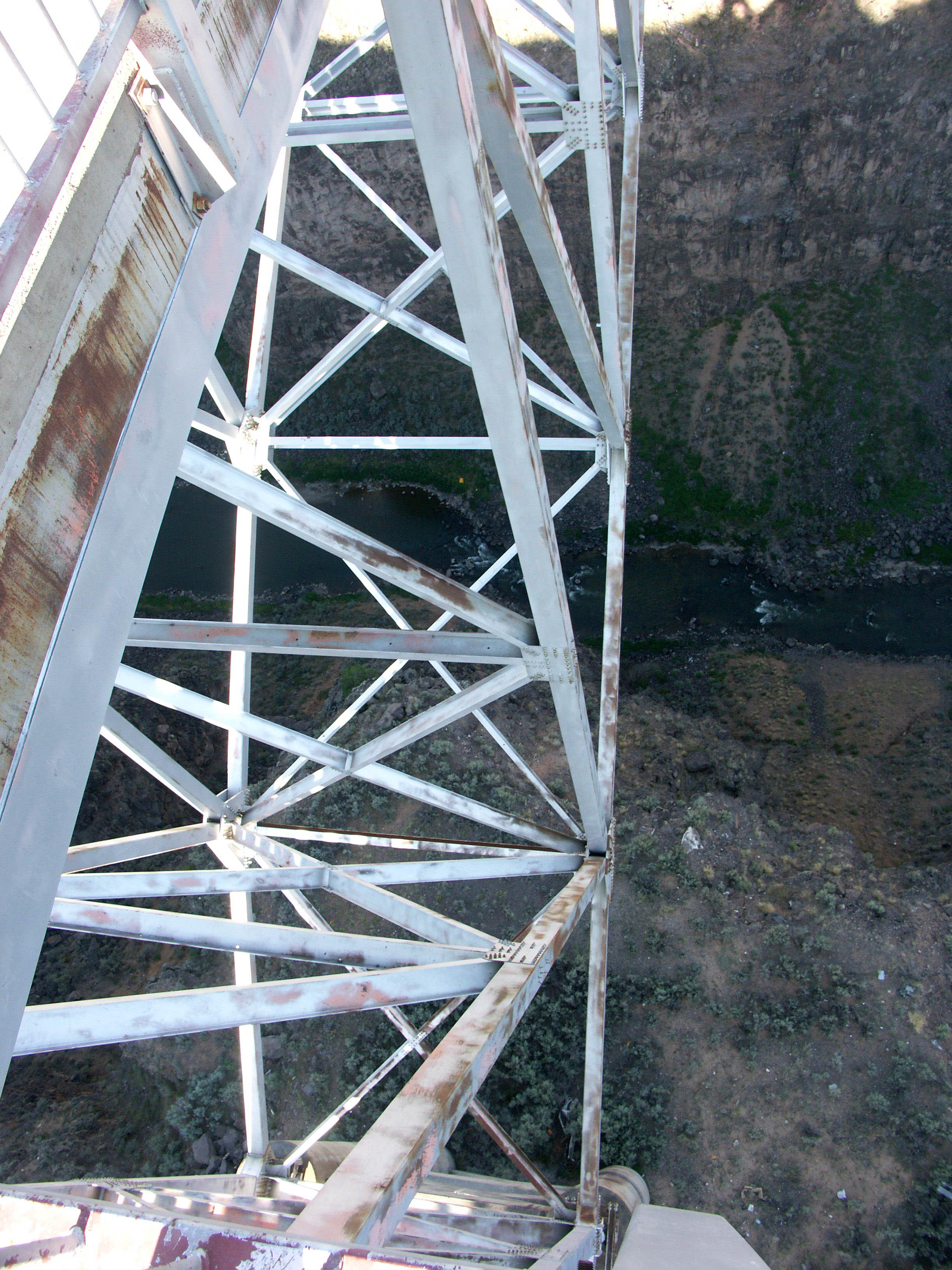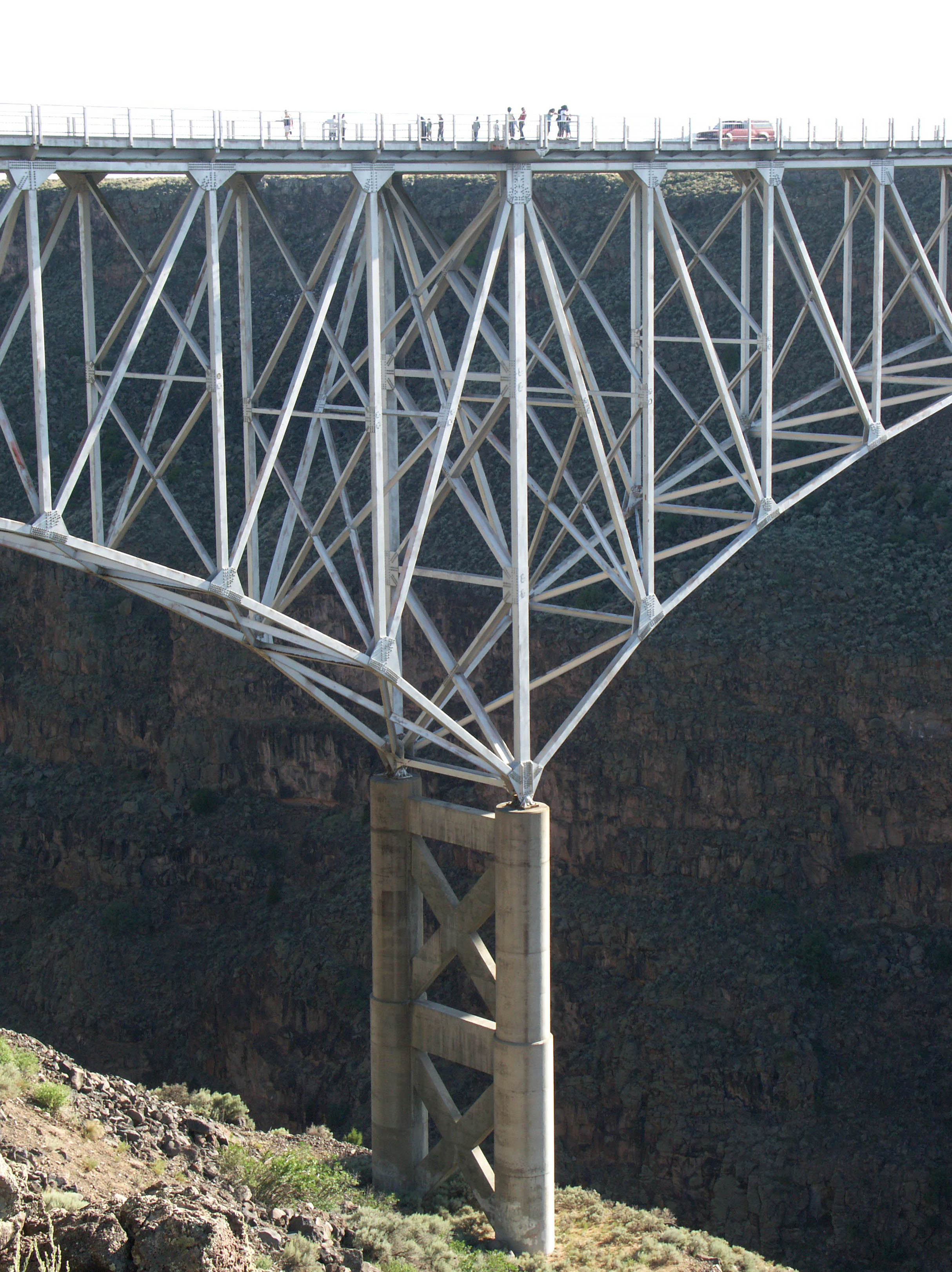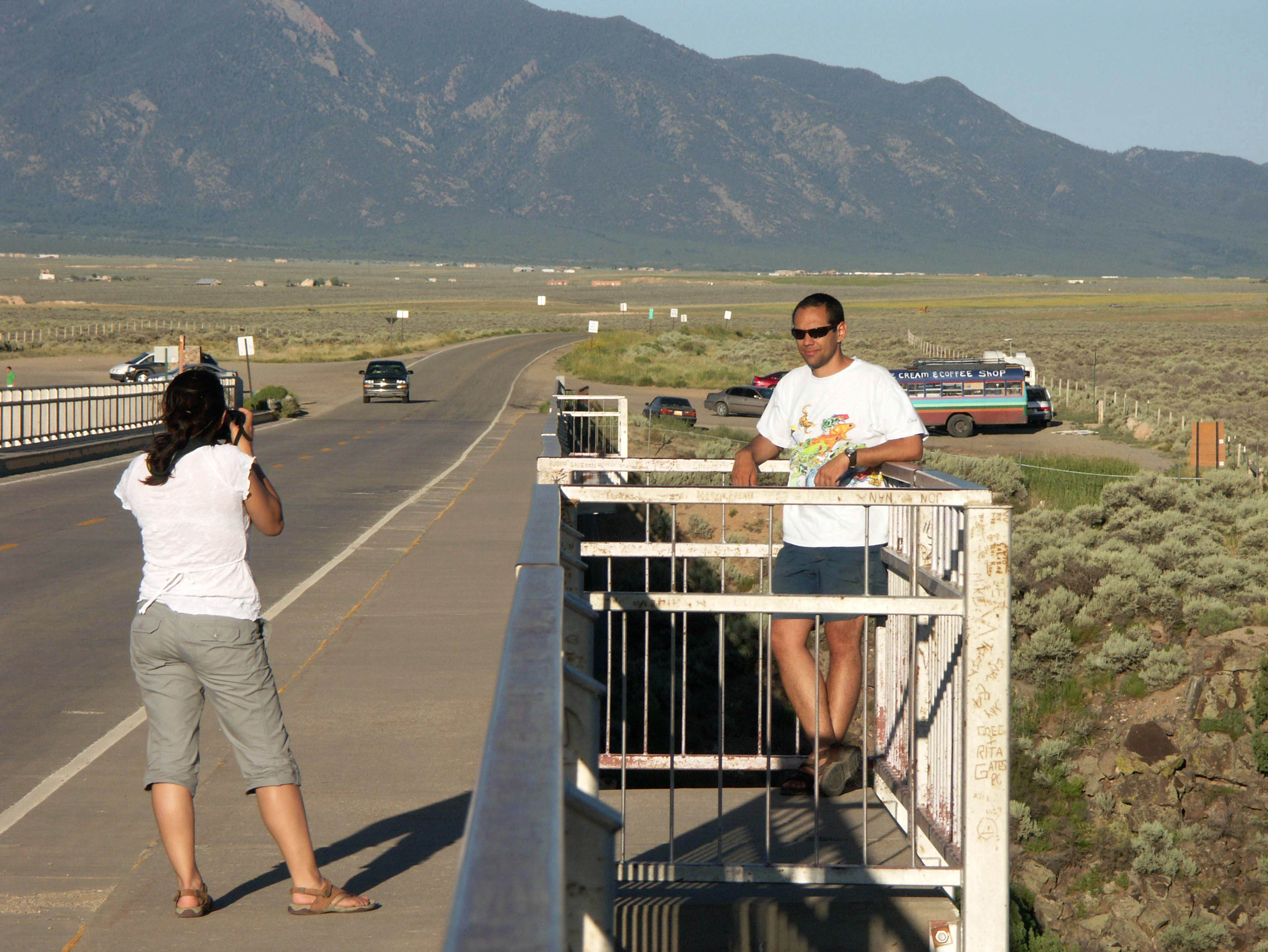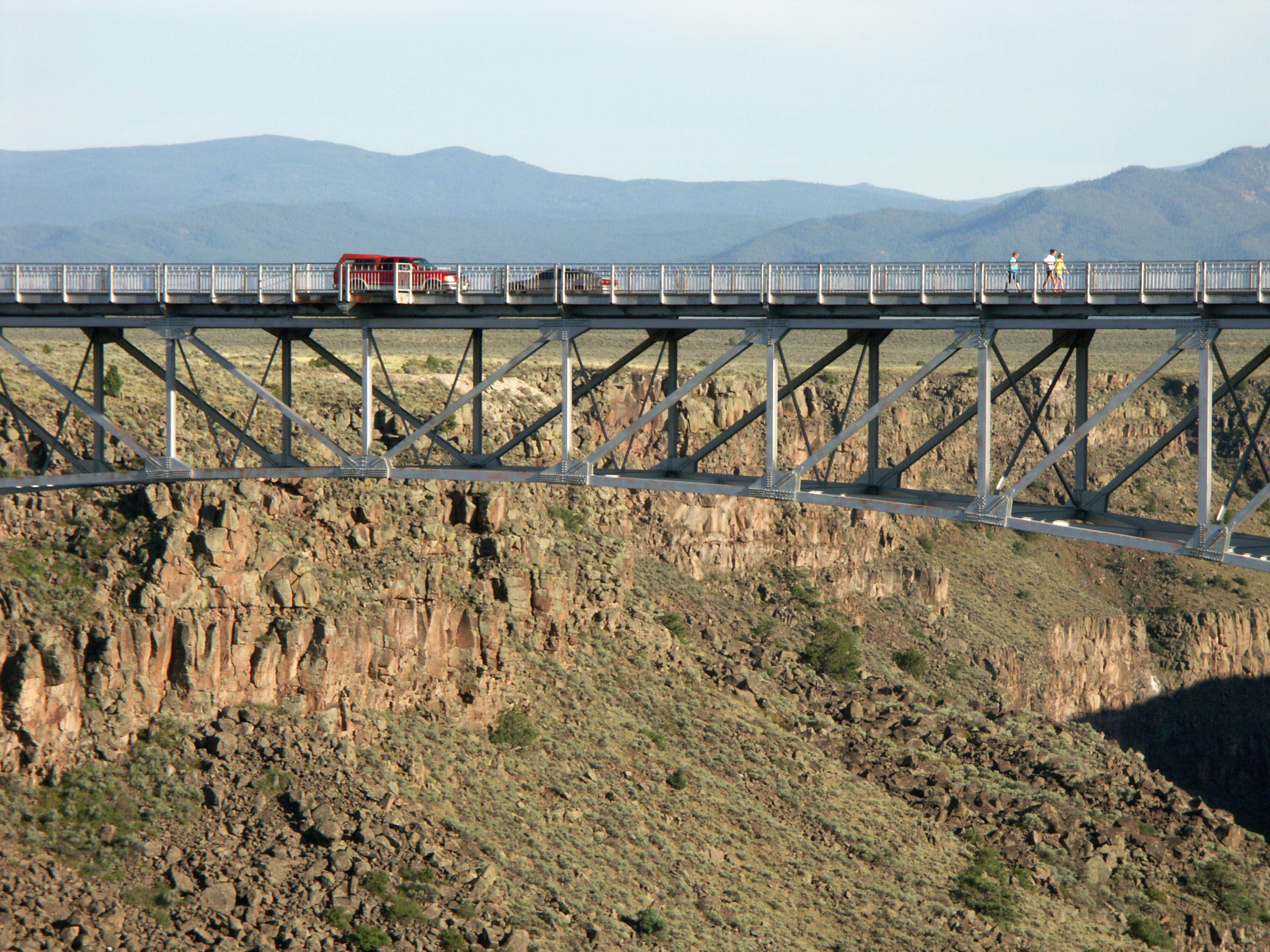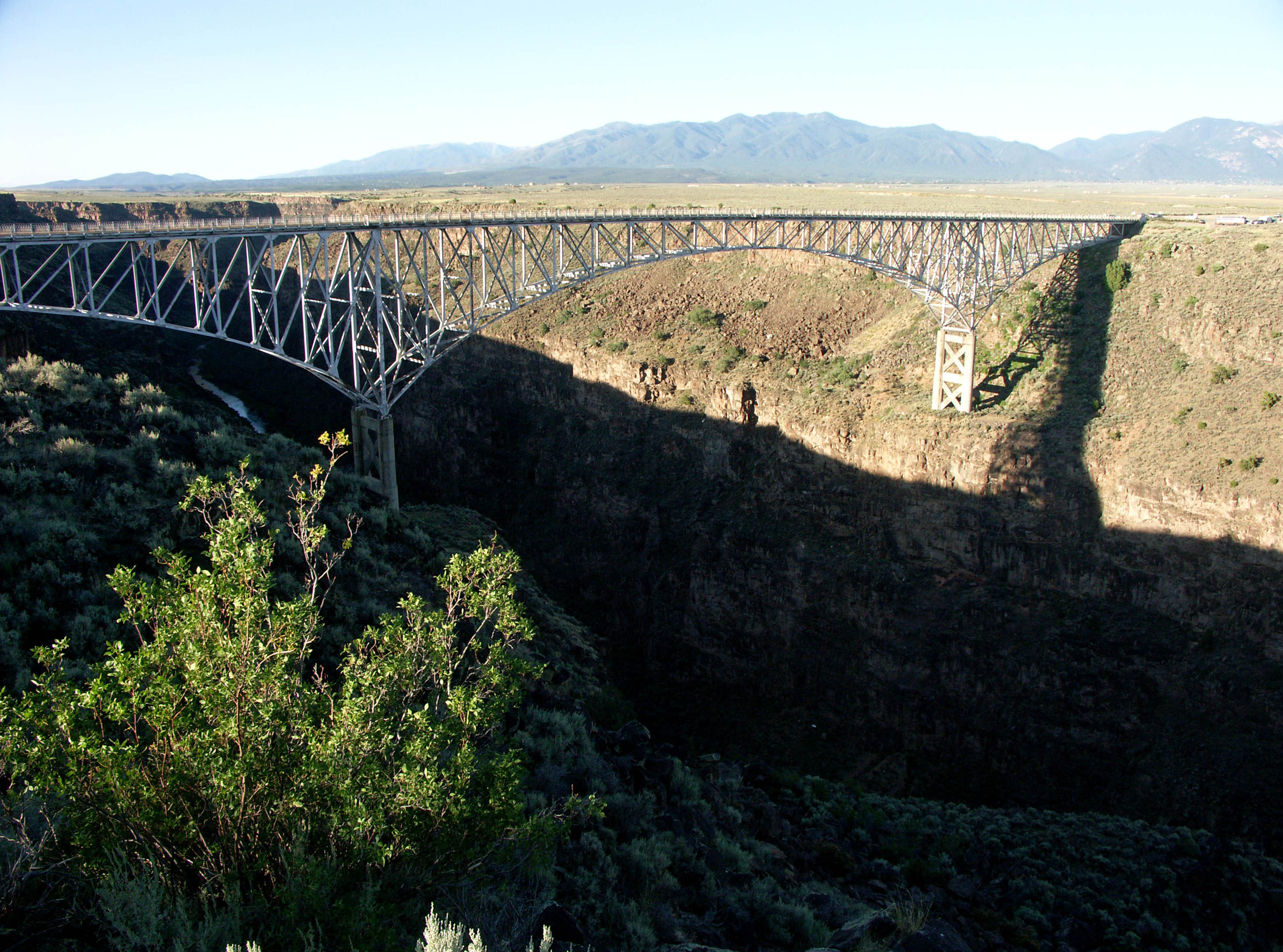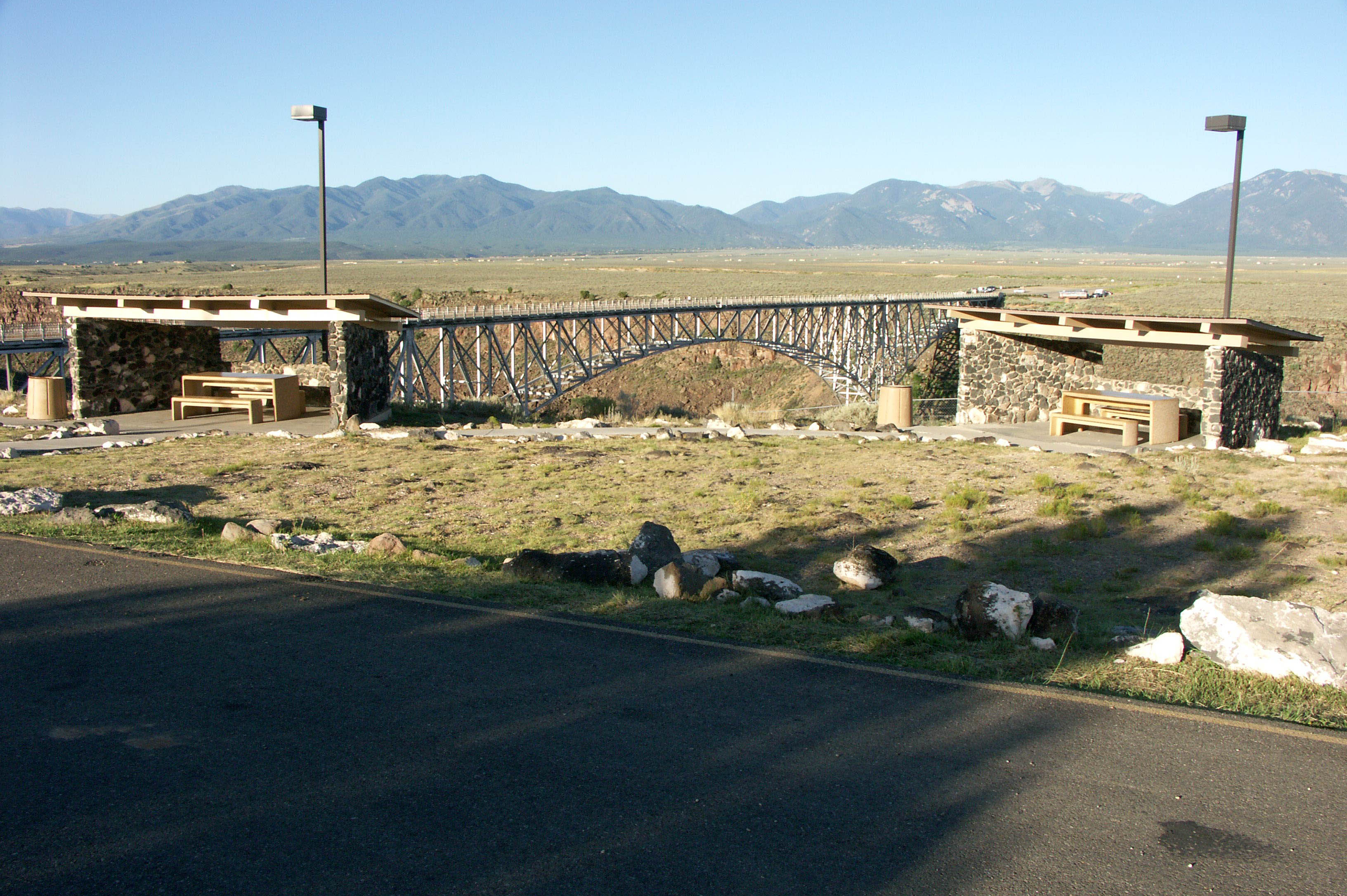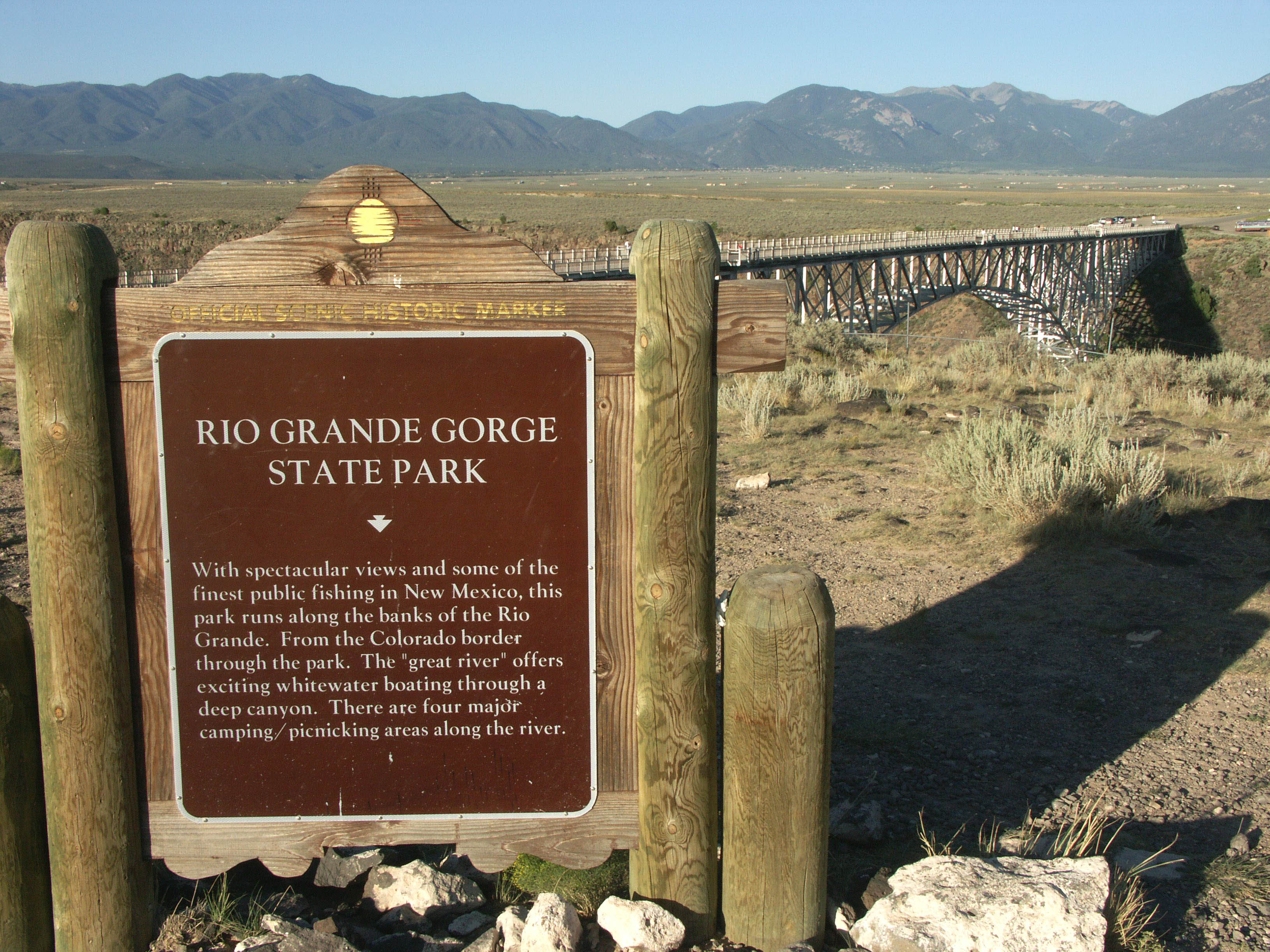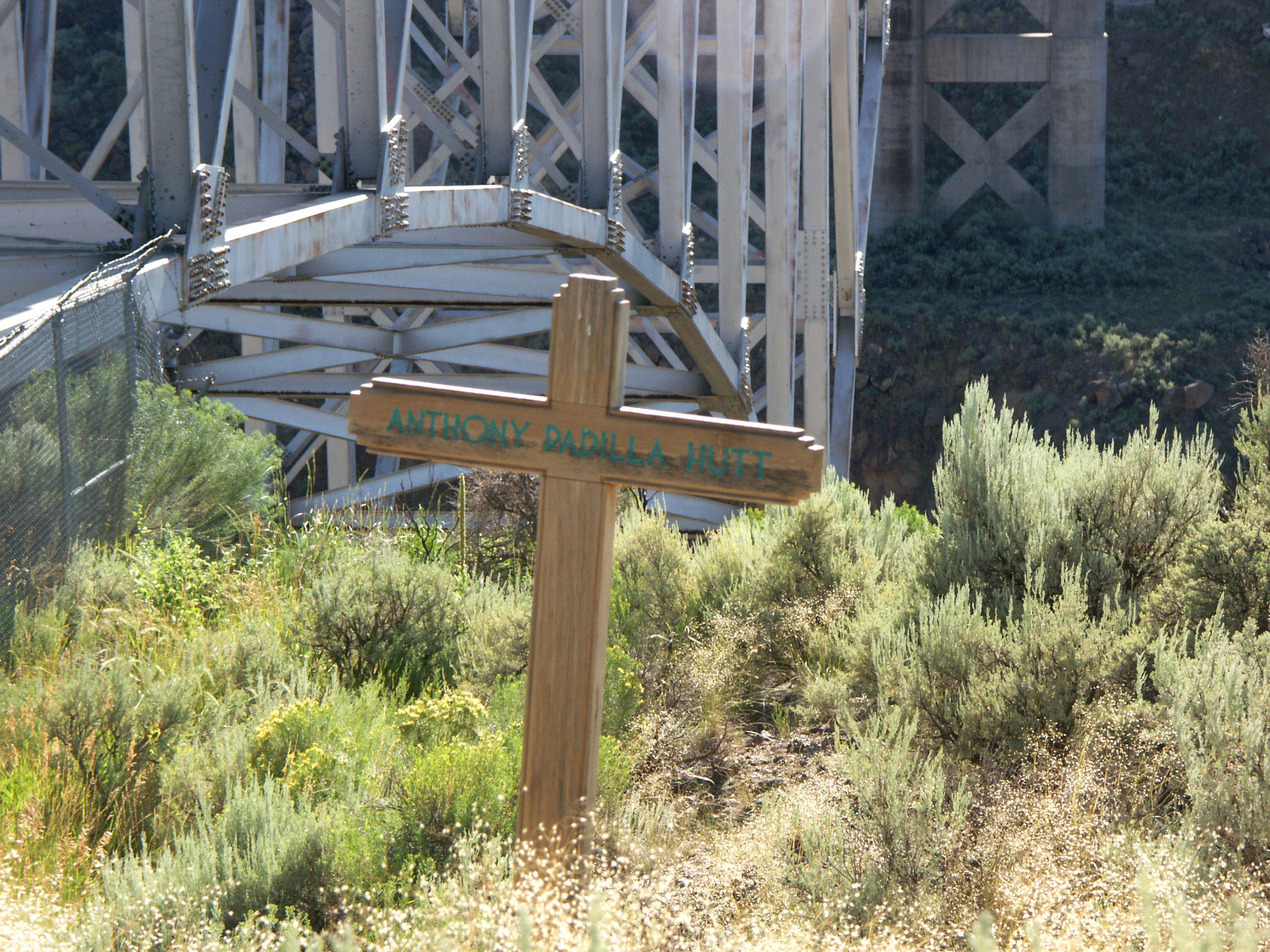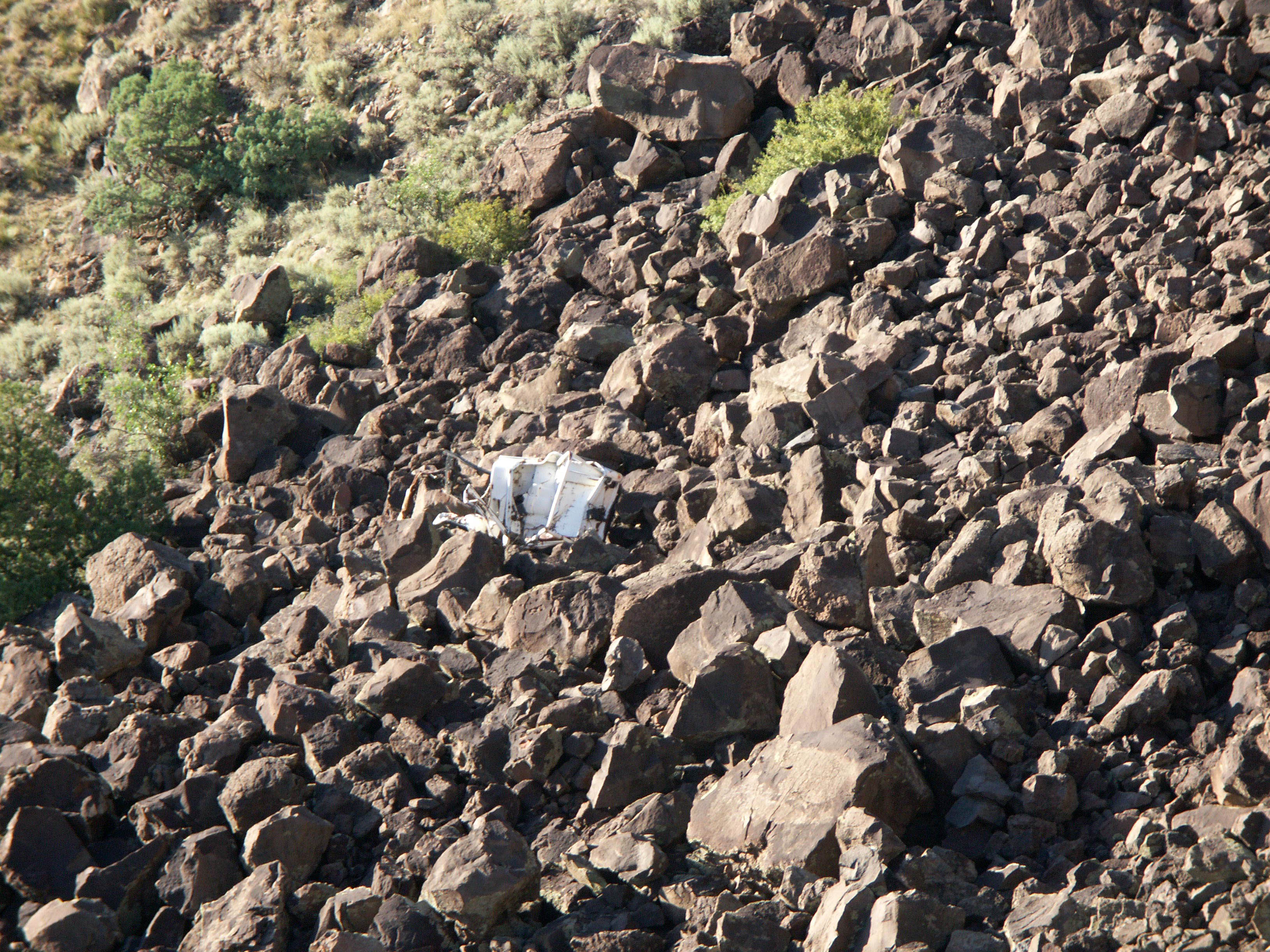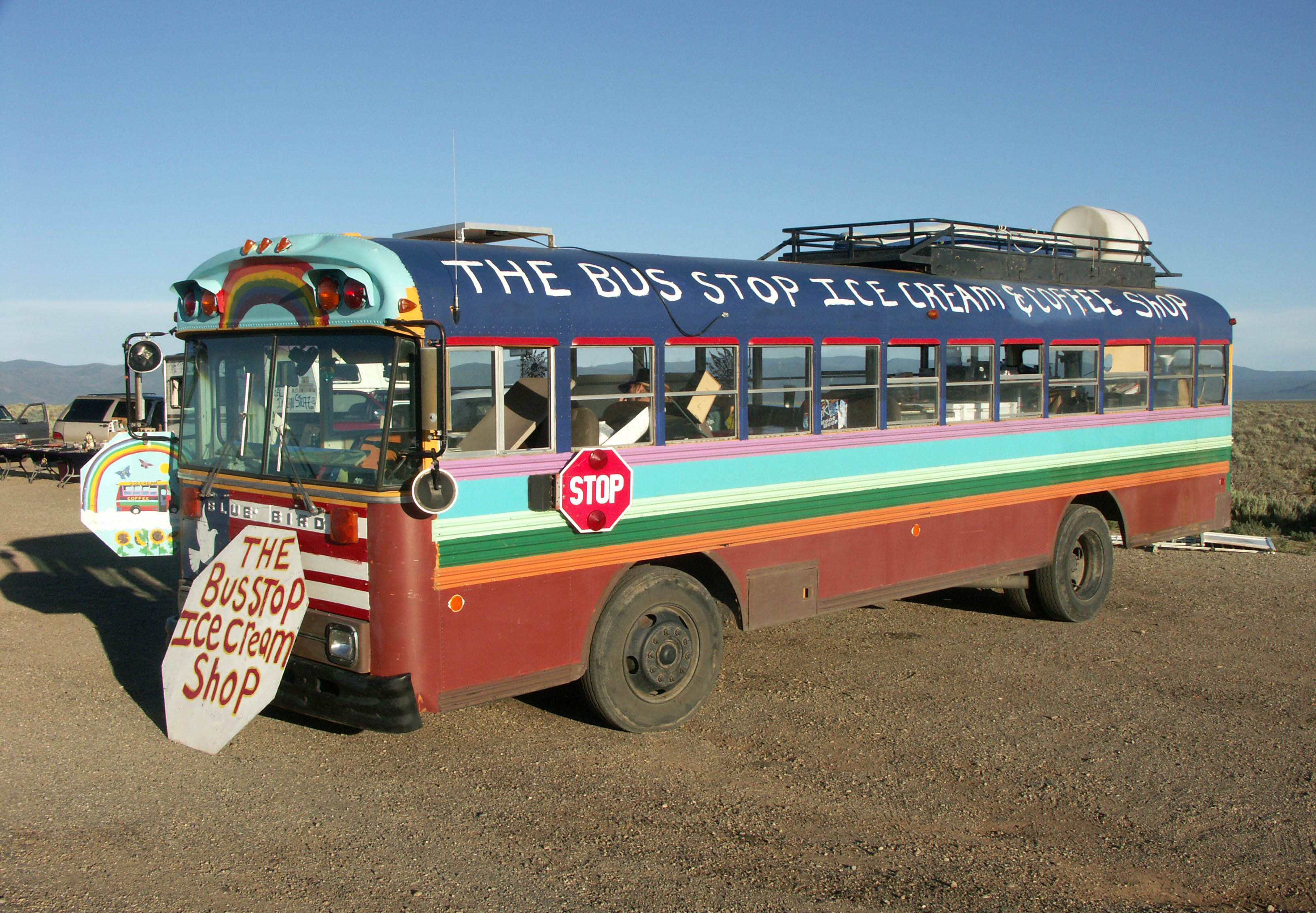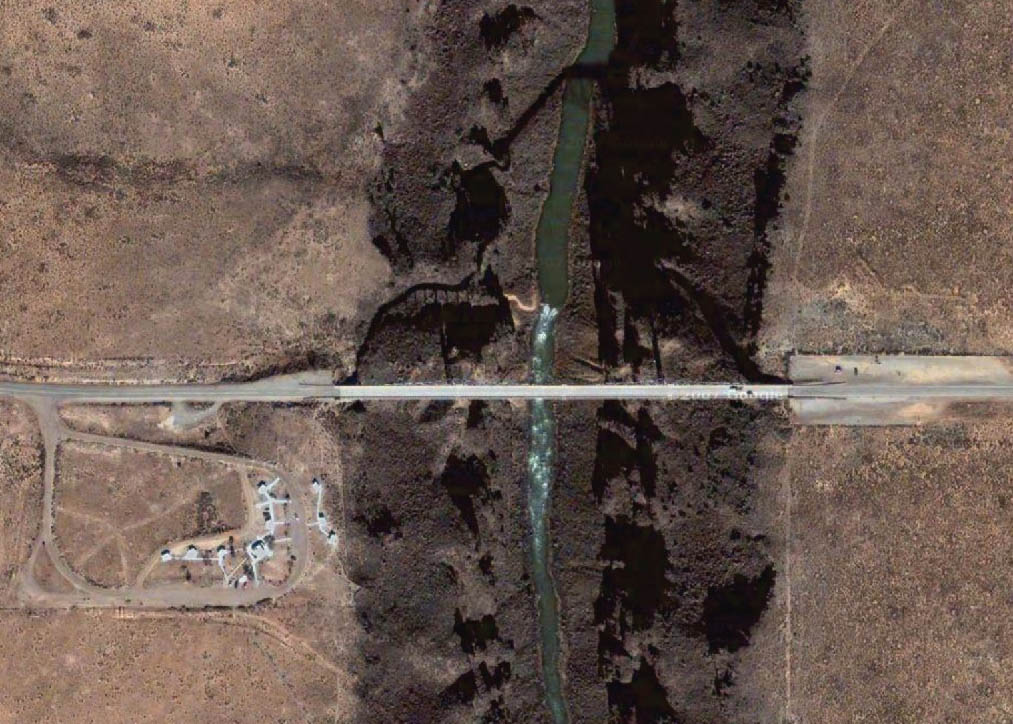Rio Grande Gorge Bridge
Rio Grande Gorge Bridge
Taos, New Mexico, United States
565 feet high / 172 meters high
600 foot span / 183 meter span
1965
One of America’s highest and most famous bridges, the route 64 crossing of the Rio Grande near Taos, New Mexico was completed in 1965. A well proportioned cantilever truss with an attractive, curvilinear profile, the bridge received the American Institute of Steel Construction’s award for “Most Beautiful Long Span Steel Bridge” of 1966. In 1997 it was placed on the National Register of Historic Places.
With its headwaters high up in the Rocky Mountains of south-central Colorado, the Rio Grande is America’s 4th longest river, stretching 1,885 miles (3,034 km) south to the Gulf of Mexico. Located 10 miles (16 km) west of Taos, the deep gorge of the Rio Grande is the only major rift across an otherwise flat expanse of land between the mountains of the Carson National Forest and the Sangre de Cristos.
The bridge is one of the most visited tourist attractions in the region with parking areas on both sides of the bridge. Over the years, the popularity of the bridge has often led to height exaggerations. Most sources have it between 600 feet (183 mtrs) and 700 feet (213 mtrs) high when the true height is 565 feet (172 mtrs) from road deck level to the normal surface level of the river.
One of the best features of the bridge are several platforms that cantilever out from the roadway. They allow pedestrians to stand several feet out into space - away from the comfort of the main railing and sidewalk - adding to the unease of being so high above the ground. The popularity of the span has also made it a regional suicide magnet with approximately 3 jumpers a year. A movement is growing to address the problem - not only to save lives but because the sheer cliffs of the gorge make it an all day affair for the local fire and rescue teams to retrieve the bodies.
White water rafting is popular in the region and allows a rare opportunity to view the bridge from the bottom of the canyon. The only access point is at Dunns Bridge, 4 miles (6.4 km) north of the bridge. From here the river flows south for 16 miles (26 kms) through the famous Taos “Box” where the river is mostly continuous white water of Class 4+ and 5 in high water. The take out is at Taos Junction Bridge where the river becomes placid again.
A major action scene of mayhem and destruction takes place on the bridge in the 2009 Warner Brothers film Terminator Salvation.
Image by Eric Sakowski / HighestBridges.com
Image by Eric Sakowski / HighestBridges.com
Aerial image by David Gunter / Flying Dog Inc.
Image by Jenni Ripley the Queen of Subtle.
Image by Eric Sakowski / HighestBridges.com
Image by A Logan.
Image by Eric Sakowski / HighestBridges.com
Image by Eric Sakowski / HighestBridges.com
Image by Eric Sakowski / HighestBridges.com
Image by Eric Sakowski / HighestBridges.com
Image by Eric Sakowski / HighestBridges.com
Image by Eric Sakowski / HighestBridges.com
Image by Eric Sakowski / HighestBridges.com
Image by Eric Sakowski / HighestBridges.com
Image by Eric Sakowski / HighestBridges.com
Image by Eric Sakowski / HighestBridges.com
Image by Eric Sakowski / HighestBridges.com
Image by Eric Sakowski / HighestBridges.com
Image by Eric Sakowski / HighestBridges.com
Image by Eric Sakowski / HighestBridges.com
Image by Eric Sakowski / HighestBridges.com
Image by Eric Sakowski / HighestBridges.com
Image by Eric Sakowski / HighestBridges.com
Image by Eric Sakowski / HighestBridges.com
Image by Eric Sakowski / HighestBridges.com
Image by Eric Sakowski / HighestBridges.com
Image by Eric Sakowski / HighestBridges.com
Rio Grande Gorge satellite image.
